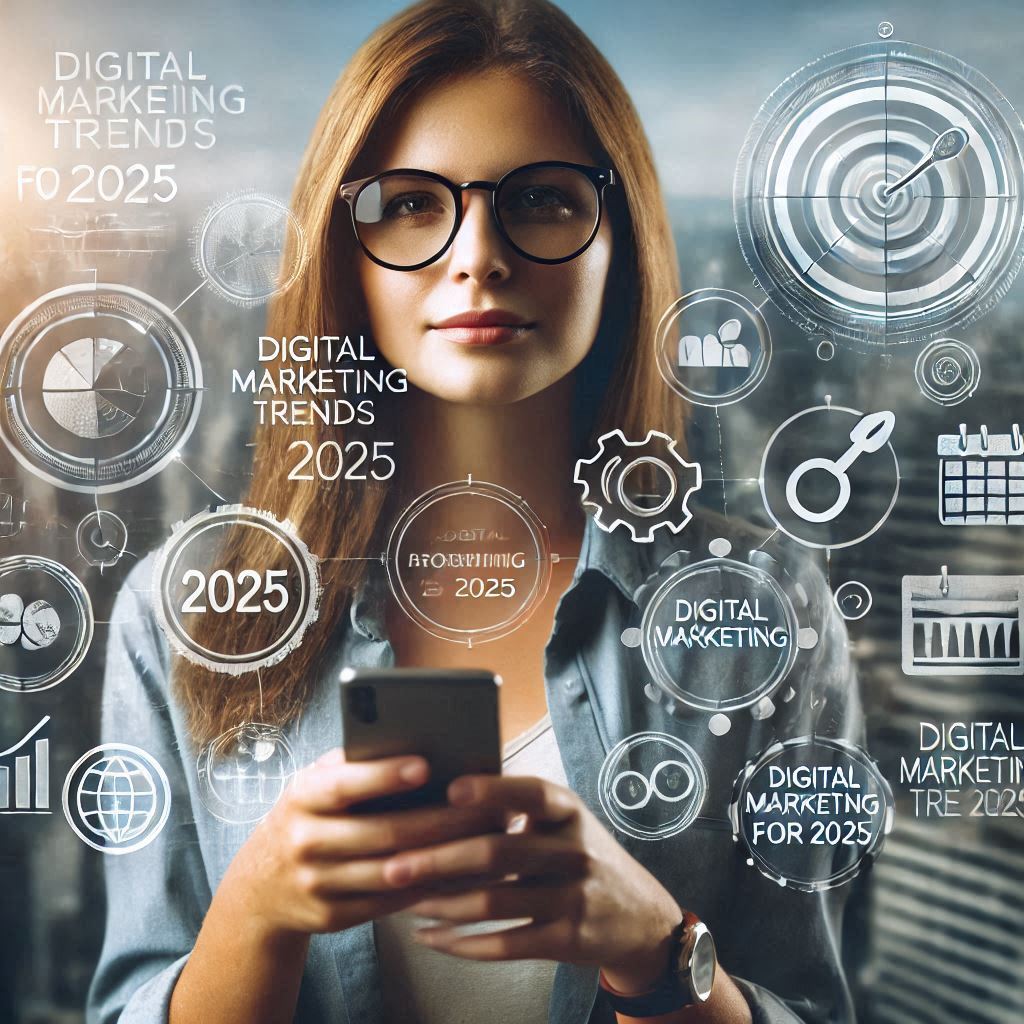
- admin
- September 23, 2023
- No Comments
Introduction
The digital marketing landscape is constantly evolving, and 2025 is set to bring transformative changes. Staying ahead of these trends is crucial for businesses aiming to remain competitive and resonate with their target audiences. This article explores the most significant developments shaping the future of digital marketing.
The Evolution of Content Marketing: What’s Next?
Personalization at Scale
As consumer expectations for tailored experiences grow, personalization in marketing has become a non-negotiable strategy. AI-driven tools are enabling marketers to create highly customized content at scale. By analyzing user data and behaviors, these tools help brands deliver the right message to the right audience. Case studies from leading companies, such as Spotify’s Wrapped campaign, demonstrate the power of effective personalization.
Interactive and Immersive Content
The integration of augmented reality (AR) and virtual reality (VR) is revolutionizing content marketing. From interactive product demos to immersive brand experiences, companies are engaging audiences like never before. Gamification and interactive storytelling further enhance consumer engagement, as seen in campaigns by brands like IKEA and Nike.
Sustainability and Ethical Storytelling
Today’s consumers demand more than just quality products; they expect brands to align with ethical and sustainable values. Marketing strategies that emphasize sustainability and transparency resonate deeply with modern audiences. Authentic storytelling—backed by genuine efforts—builds trust and strengthens brand loyalty.
How AI is Transforming Digital Advertising
Smarter Audience Targeting
Artificial intelligence has transformed audience segmentation, allowing for unprecedented precision in targeting. Predictive analytics tools enable marketers to anticipate consumer needs and tailor their campaigns accordingly, leading to improved ROI and enhanced ad performance.
Creative Automation
AI-powered tools are increasingly taking over the creative aspects of advertising, from designing visuals to writing ad copy. While maintaining a balance between automation and human creativity is essential, brands can use AI to efficiently produce high-quality, engaging advertisements.
Real-Time Optimization
Campaign optimization is no longer a static process. AI enables advertisers to monitor and adjust their campaigns in real-time, ensuring better outcomes. From budget reallocation to tweaking ad placements, real-time adjustments drive superior performance.
Top Digital Marketing Trends to Watch in 2025
Voice Search Optimization
With the proliferation of voice-enabled devices like smart speakers and voice assistants, optimizing for voice search is critical. Brands must adapt their SEO strategies to include natural language queries, focusing on conversational keywords and localized content.
Zero-Party Data Collection
As data privacy regulations tighten, zero-party data—information willingly shared by consumers—is becoming a valuable asset. By using surveys, quizzes, and preference centers, brands can collect data transparently while fostering trust with their audiences.
Social Commerce Expansion
Social media platforms are evolving into full-fledged e-commerce hubs. Features like in-app shopping and live-streamed product showcases are driving social commerce growth. To capitalize on this trend, brands should create seamless shopping experiences on platforms such as Instagram, TikTok, and Facebook.
Video Marketing Dominance
Video content continues to dominate, with short-form videos and live streams leading the way. Platforms like TikTok, Instagram Reels, and YouTube Shorts are ideal for capturing audience attention. Creating engaging, shareable video content is a must for brands aiming to stay relevant.
The Bigger Picture: Integrating Trends for Success
To thrive in 2025’s dynamic marketing environment, businesses must integrate various trends into a cohesive strategy. Combining personalization, AI-driven tools, and cutting-edge content formats ensures a comprehensive approach. Flexibility and adaptability are key to navigating this ever-changing landscape.
Conclusion
The year 2025 promises to be a pivotal one for digital marketing, with advancements in AI, personalization, and immersive content setting the stage for innovation. By embracing these trends, businesses can remain at the forefront of their industries and build lasting connections with their audiences. Start preparing today to unlock the potential of these transformative strategies.
Frequently Asked Questions
AI-driven personalization and real-time optimization are at the forefront of digital marketing trends.
It helps build consumer trust and allows brands to create highly targeted marketing campaigns.
Consumers increasingly prefer brands that align with their values, making sustainability a key differentiator.
By using affordable AI tools for audience targeting, creative generation, and performance optimization.
Platforms like Instagram Reels, and YouTube Shorts are dominating video marketing in 2025.